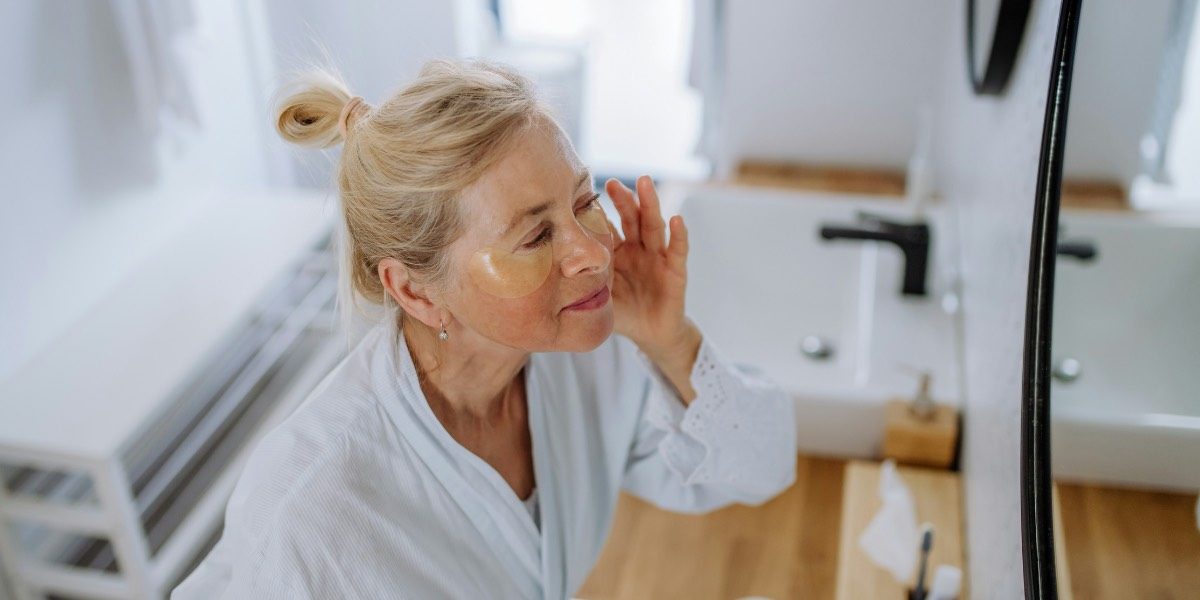How Does Aging Influence Skin Health Over Time?
Skin undergoes gradual changes as part of the natural aging process. The production of collagen and elastin, two proteins essential for firmness and flexibility, declines over time. This often results in a loss of elasticity and the appearance of fine lines. Additionally, the skin’s ability to retain moisture diminishes, leading to dryness and increased sensitivity. While these changes occur at different rates for each person, they are influenced by both genetics and external factors such as environmental exposure and lifestyle habits.
Read also: The Benefits of Eating Fresh Produce: A Guide to a Healthier Lifestyle
What Factors Contribute to Premature Skin Aging?
Some external influences may accelerate visible skin changes. Prolonged exposure to ultraviolet (UV) radiation has been widely associated with the breakdown of collagen and changes in pigmentation. Pollution, smoke, and environmental irritants can also contribute to oxidative stress, which may affect overall skin appearance. Other lifestyle factors, such as inconsistent sleep patterns and persistent stress, can play a role in the skin’s ability to repair itself. The accumulation of these influences over time may contribute to uneven texture, reduced elasticity, and visible lines.
How Does Hydration Support Skin Resilience?
The skin’s outermost layer plays an important role in maintaining hydration and protecting against external stressors. As the skin matures, its ability to retain moisture decreases, sometimes leading to dryness or discomfort. Applying hydrating products that support the skin barrier may help maintain a smoother appearance. Drinking water contributes to overall hydration, but topical moisture remains a key factor in skin suppleness and texture.
Can Nutrition Influence Skin Vitality?
The relationship between nutrition and skin health has been widely studied. A well-balanced intake of vitamins, minerals, and antioxidants can support various biological processes that influence skin function. Vitamin C, commonly found in citrus fruits, plays a role in collagen formation, while healthy fats from sources such as nuts and avocados may contribute to moisture retention. Diets high in processed sugars and refined carbohydrates have been linked to inflammation, which may affect collagen stability. While no single food promises a youthful complexion, diverse and nutrient-rich dietary choices support overall well-being, which in turn may reflect on the skin.
Why Is Sun Protection Important for Maintaining Skin Integrity?
Consistent sun protection is widely recognized as an important factor in preserving skin quality over time. Ultraviolet radiation can affect the skin’s structure, potentially leading to changes in texture and pigmentation. Even on overcast days, UV exposure accumulates, contributing to gradual skin changes. A broad-spectrum sunscreen applied daily helps protect against both UVA and UVB rays, which are associated with skin damage. Wearing protective clothing and seeking shade when possible can further minimize exposure.
What Role Does Sleep Play in Skin Renewal?
Rest supports many biological repair processes, including those related to skin health. During sleep, the body undergoes natural cycles that help restore hydration levels and repair daily wear. When sleep patterns become inconsistent, some people notice an increase in dullness or visible fatigue in their complexion. Creating a restful environment and maintaining a steady sleep schedule may contribute to overall skin vitality over time.
How Does Stress Affect Skin Appearance?
Ongoing stress has been associated with a variety of physiological responses, some of which may influence skin condition. Elevated cortisol levels, a hormone linked to stress, may contribute to increased dryness or fluctuations in oil production. Some individuals experience changes in skin texture or increased sensitivity during prolonged periods of stress. Managing daily stress through relaxation techniques, mindful breathing, or physical activity may help maintain a balanced skin appearance.
Can a Skincare Routine Help Support Aging Skin?
Daily skincare habits can influence how skin adapts to changes over time. The use of gentle, hydrating formulations may help maintain moisture balance, while products containing antioxidants or peptides can provide additional support. Overly harsh products or frequent exfoliation may sometimes compromise the skin barrier, leading to increased sensitivity. Choosing skincare suited to individual needs and adjusting routines as the skin matures can contribute to long-term resilience.
Is Regular Physical Activity Beneficial for Skin Health?
Movement supports circulation, which plays a role in delivering oxygen and nutrients throughout the body, including the skin. Increased blood flow during exercise may contribute to a more refreshed appearance, while physical activity has also been associated with reduced stress levels. Sweating during movement helps with natural detoxification, though cleansing the skin afterward is important to remove any accumulated debris. While no single activity prevents visible aging, consistent movement supports overall wellness, which may reflect on skin quality.
Read also: Strengthening Gut Health Through Active Living
How Can Skin Stay Healthy and Balanced Over Time?
The skin adapts to both internal and external influences, making daily care and mindful choices key factors in maintaining a balanced appearance. Consistently protecting against sun exposure, staying hydrated, managing stress, and nourishing the skin all contribute to long-term support. While aging is an ongoing process, small adjustments to daily habits can help maintain a smooth, resilient complexion throughout the years.








